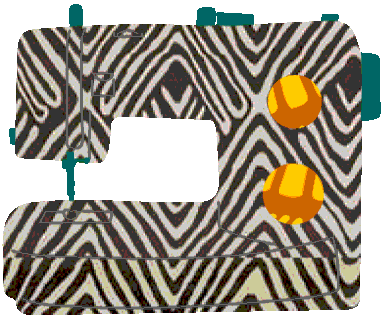How VEPSI Went from a Pop-Event to a Sustainable Marketplace
Eilean von Lautz and Leslie Djaoual may have no background in fashion, but they definitely have the know-how in terms of driving an idea forward and creating a buzz – which is exactly what Eilean did when she first launched VEPSI pop-up sales. She first started organizing these VEPSI – which stands for Ventes Privées Solidaires – events, while working as a UN consultant in the field of innovation and international development, alongside running the fashion blog, Once in Paris. Upon recognizing the growing demand for sustainable brands and the massive potential of social media in terms of supporting the sustainable fashion movement, Eilean got to work. “I started bringing sustainable brands, influencers and NGOs together in a single event. Through VEPSI, we follow the concept of short sales of a curated selection of designers during a short period of time. These sales also have a positive social impact, as every purchase includes a donation. During these pop-ups, sustainable brands and influencers came together to sell their collections as well as vintage clothes, while the influencers increased the visibility of the event and participating brands.”
It quickly became clear that Eilean had stumbled upon a powerful strategy for sustainable brands: the combination of direct sales and social media promotion. "When I met Leslie in 2018, we decided that it was time to digitalize the pop-up experience - and the idea for VEPSI as a sustainable marketplace with an in-house influencer program, was born. Today, we’re proud to have created a marketplace where every designer is supported by a network of sustainable influencers, people who value their styles and communicate on their behalf to promote sustainably,” Eilean tells Fashionomics Africa.
Through VEPSI’s pop-up events, Eilean and Leslie had already reaped a good understanding of the designer’s needs, the market situation, etc. “And one day, we just decided that it was a question of timing, and the timing was right – so, we focused on the start-up full-time and eventually quit our jobs,” Leslie goes on to explain. “Influencers represent an incredibly powerful opportunity. To us, they are the drivers of a global ethical lifestyle movement and very versatile. Sustainable influencers can talk about social, environmental and economic issues without making people feel guilty, on the contrary,” Eilean stresses. “Yes, they have a knack for making messages and information audible and attractive, using the same codes as traditional marketing and publicity strategies to convey vital information and raise awareness. Most importantly however, they really encourage people to act – they don’t just influence, they make concrete impacts,” Leslie adds.
Eilean and Leslie’s ambition through VEPSI, is to create the largest sustainable marketplace in the world, supported by the largest network of sustainable influences. “We are all about building and enlarging this community we are part of, making the most positive impact and becoming a platform where anyone willing is welcome to be educated on how to change their consumption lifestyle for the better. Step by step,” Leslie tells us. Naturally, we wanted to know how the African continent and its brands and designers fit into the VEPSI platform and community, and the sustainable fashion sector at large.
“The African continent is incredibly promising. Its large number of talented designers who create products of quality and craftsmanship can rivalize with European haute couture. It’s important to support these designers and encourage others to follow the path of sustainable production instead of making the same mistakes European industries have made, adopting production methods and supply chains that put profit over people, quality and the environment. Putting these sustainable fashion designers on an international centerstage is even more important as many sustainable designers in African countries complain about an overall lack of national support and recognition for their efforts. The European / Western demand for sustainable fashion made in Africa is growing, but the cumulation of multiple barriers - lack of visibility, high shipping costs, complex tax procedures - makes it difficult for them to meet ‘their’ customers. We are hoping to change that through our VEPSI marketplace,” Eilean is proud to report. “We have already partnered with South African brands such as Poly and Lunar.”
